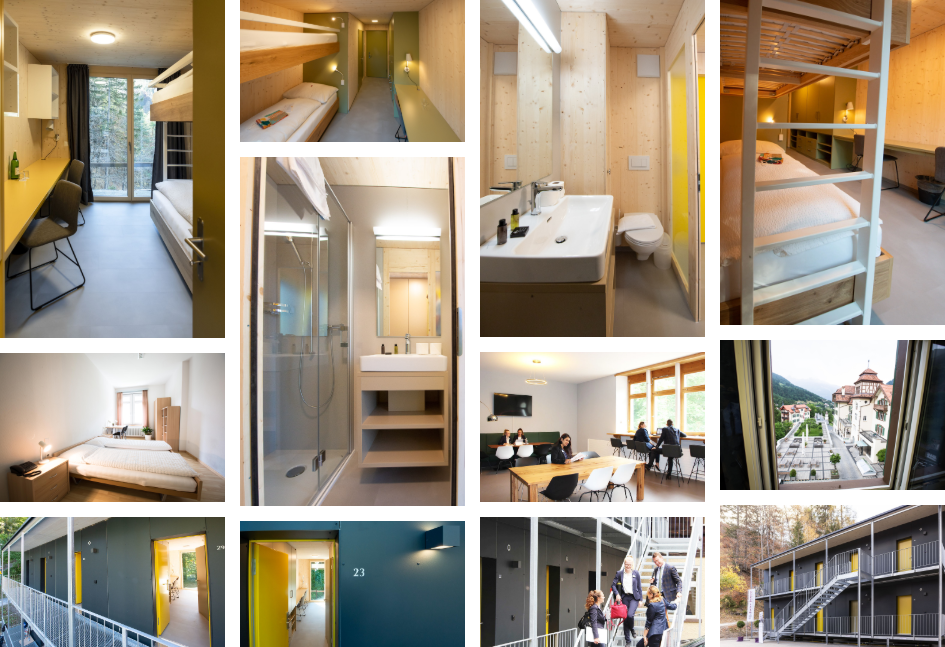Our EHL Swiss School of Tourism & Hospitality in Chur-Passugg is a real ‘gem' with its panoramic alpine views, historic architecture dating from the ‘Belle Époque' era, and the building's unique history as a health resort with healing waters.
Our EHL Swiss School of Tourism & Hospitality in Chur-Passugg is a real ‘gem' with its panoramic alpine views, historic architecture dating from the ‘Belle Époque' era, and the building's unique history as a health resort with healing waters.
The over 150-year-old school hotel building was once an internationally renowned spa hotel with various healing mineral springs.
The EHL Passugg campus is home to approximately 250 apprentices and students from all over the world. They are accommodated in the school hotel as well as in the Fontana and the Bachelor Village. Approximately 160 single and double rooms form the new home of our students and we are continuing to expand. Many rooms have a wonderful view over the city of Chur and the mountains, and some have a terrace.
Accommodation in our school hotel means benefiting from an excellent learning environment and modern infrastructure. A security service guarantees 24/7 protection on campus. All rooms are fully furnished, including telephone and wireless internet connection. Laundry facilities are available 24/7, and a dry cleaning service is available.

Emotional experiences of hotel or restaurant customers in fact contribute to loyalty, satisfaction, future purchase intentions, a “forgiving” attitude and recommendation.
Visitors from China, please watch these videos on Tencent QQ.
In the context of hospitality, it is all about guests’ individual emotions. They are instrumental in decoding human decisions, as they are strong motivational forces that shape decision-making processes.
So at its core, Affective Hospitality can be defined as the strategic, operative and tactical provision of experiential, culturally mindful interaction scenarios to evoke conscious inert and positive guest emotions by activating the entire sensory range through controlled verbal and non-verbal communication.
It may not be possible to control or recreate guest emotions in hospitality but it is possible to create emotive frameworks within which those experiences are more likely to happen. This objective needs to permeate through all strategic and operational management levels of a hotel.